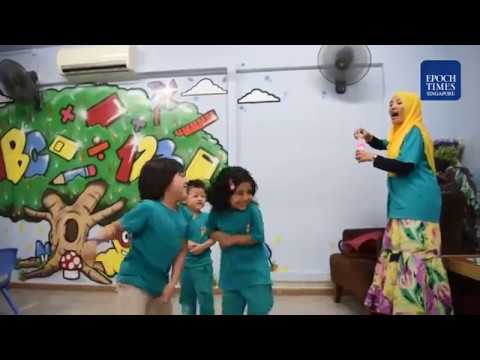By Jade Pearce |
弟子规
弟子规,圣人训。首孝弟,次谨信。
泛爱众,而亲仁。有余力,则学文。
父母呼,应勿缓,父母命,行勿懒。
父母教,须敬听,父母责,须顺承。
冬则温,夏则凊,晨则省,昏则定。
出必告,反必面,居有常,业无变。
事虽小,勿擅为,苟擅为,子道亏。
物虽小,勿私藏,苟私藏,亲心伤。
亲所好,力为具,亲所恶,谨为去。
身有伤,贻亲忧,德有伤,贻亲羞。
亲爱我,孝何难,亲憎我,孝方贤。
亲有过,谏使更,怡吾色,柔吾声。
谏不入,悦复谏,号泣随,挞无怨。
亲有疾,药先尝,昼夜侍,不离床。
丧三年,常悲咽,居处变,酒肉绝。
丧尽礼,祭尽诚,事死者,如事生。
At Home,
Be Dutiful to My Parents
What parents like, make an effort to possess.
What parents despise, carefully get rid of.
Injury to one’s body brings parents worry.
Injury to one’s character brings parents shame.
When parents love me, it is easy to be good to parents.
When parents detest me, then it’s truly virtuous to be good to parents.
When parents are doing something that’s wrong, counsel them to make them change.
Make my expression pleasant, and soften my voice.
If the counsel is not accepted, wait until parents are happy then counsel them again.
Weeping and wailing should follow, and beatings are borne without complaint.
Dizi Gui (Standards for Being a Good Student and Child) is an ancient Chinese text for children that teaches moral values and proper etiquette. It was written during the Qing Dynasty during the reign of Emperor Kangxi (康熙帝) (1661-1722) by Li Yuxiu.
Beneath the conservative, “old-school” verbose of this ancient classic, one can still find gems of wisdom that remain surprisingly relevant to our modern society.
We all know that we should be filial to our parents and parents-in-law. But what if they upset us or treat us poorly?
When our parents or parents-in-law say things that make us upset, or create problems for us, it can be hard to still treat them with unconditional filial piety.
But as said in Dizi Gui, the highest level of filial piety is being good to one’s parents even in the face of ill-treatment. “When parents love me, it is easy to be good to parents. When parents detest me, then it’s truly virtuous to be good to parents.”
The Confucian philosopher Zengzi once said, “There are three levels of filial piety. The lowest level is only labouring for the parents. The middle level is bringing honour to the parents through one’s accomplishments. The highest level is to have no omissions. … Widely spreading the teaching of kindness so that everything can benefit, this is having no omissions.”
One famous example is Min Ziqian, whose boundless kindness touched his abusive step-mother.
Min Ziqian’s Filial Piety Touches Contemptuous Step-Mother
Min Ziqian (闵子骞) lived in the country of Lu during the Spring and Autumn Period (770 B.C – 476 B.C).
Min’s birth mother died when he was young, but his father remarried and had two children with his step-mother.
Min Ziqian respected and cared about both his father and step-mother, but his step-mother disliked him and frequently ill-treated him.
One winter, she made warm winter jackets for her two sons, using silk and thick cotton padding.
But for Min Ziqian, she made a thin jacket using the flocculent part from reed which appears cotton-like but doesn’t maintain heat.
It was a severe winter, and one day Min Ziqian’s father had business in town. He asked Min Ziqian to drive the carriage.
The air was frigid, and the wind blew hard. Dressed in his thin winter jacket, Min Ziqian’s hands and feet were so frozen he could not feel them, and he kept dropping the reins.
His father became very upset with him and scolded him for his clumsiness, but Min Ziqian didn’t say a word.
Min Ziqian’s father later noticed that his son looked very pale. He touched him and noticed that Min Ziqian was only wearing a thin jacket.
He took off Min Ziqian’s jacket and saw that the jacket was only made of reed. But then he recalled his other two sons were wearing warm silk and cotton jackets.
At that moment, Min Ziqian’s father realised the pattern of cruel treatment his wife had been inflicting on his son. This infuriated him so much that he flew into a rage.
He immediately drove back home and entered the house, yelling at the top of his lungs for his wife. She appeared and trembled before him. He angrily ordered her to leave the house and never to return.
But Min Ziqian knelt beside his stepmother and begged his father to give her another chance.
He burst into tears crying, “With mother in the family, only one child suffers coldness. Should she be gone, all three of your sons would freeze. Please, Father, let Mother stay!”
Min Ziqian’s father decided to give his wife another chance. Hearing what Min Ziqian had said, Min Ziqian’s step-mother was so deeply touched her attitude to Min Ziqian completely changed. She started to treat Min Ziqian as lovingly as she did her own sons.
The story of Min Ziqian’s filial piety has been spread widely since. His tale is honoured in the following poem:
Mr. Min, the widower, has an admirable son,
Who never grudged his second mother’s hateful, wicked ways.
“Keep her here at home!” he begged, while kneeling by the cart.
“Or else three boys will suffer from the biting wind and frost.”
Story adapted from Pureinsight.org
Quote:
With mother in the family, only one child suffers coldness. Should she be gone, all three of your sons would freeze.
Min Ziqian to his father, speaking up for his step-mother despite her ill-treatment of him
















